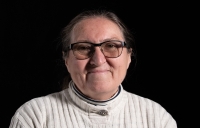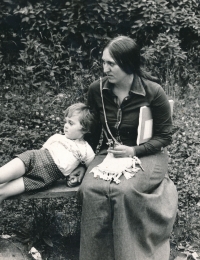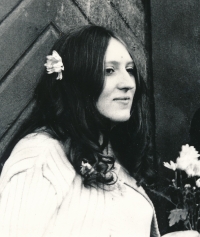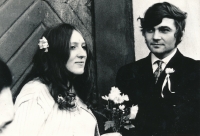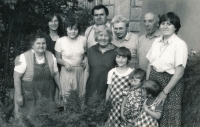God has only existed since November 1989? That I do not understand!

Download image
Lenka Kocourová was born as Lenka Potočková on 17 May 1950 in Dobříš in the family of a tradesman, a watchmaker Jan Potoček. The family was an active member of the Dobříš Evangelical congregation. She graduated from the Dobříš Secondary School of General Education (SVVŠ) and in 1968 she started to study at the Faculty of Civil Engineering of the Czech Technical University. Here she also spent the turbulent months following the occupation of Czechoslovakia in August 1968. In April of the following year, she witnessed riots on Wenceslas Square related to the hockey victory over the USSR. In 1969 she visited Great Britain but did not consider emigration. In 1972, her daughter Anna was born, so she did not finish school until 1976. She remained an active member of the Evangelical Church even as an adult. She was in contact with the signatories of Charter 77, such as her cousin Zora Rysová and a priest, Svatopluk Karásek. She worked at the construction office in Prague 5 and in glove factories in Dobříš; since 1986 she taught mathematics and physics at Dobříš elementary school. After November 1989 she was elected to the Dobříš municipal council. In 2001 she got back to working at the construction office.
